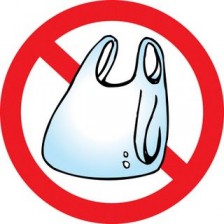Plastics sector prefers regulation over ban

Crispian Lao, spokesperson for the Philippine Plastics Industry Association, said that the plastic bags subsector is just one part of the plastics industry in the Philippines. The subsector employs 175,000 people out of the 650,000 workers living off the total industry.
“The good thing about regulation like in Quezon City, which regulated the thickness and such, is that it may bring opportunities for the recycling sector even if there would be a negative effect on the plastic bag subsector. It’s better than an outright ban,” said Lao.
“(Quezon City), at least, still allows the public to get a plastic bag for a minimal fee (P2 per bag regardless of size) or something else like paper.”
Quezon City’s restriction on the use of plastic bags starts September 1.
If, for instance, a consumer is buying a kilo of rice, the buyer will not be forced to use paper because there is an option to buy a plastic bag, which may be more convenient in such a case, he said. Consumers can also bring old plastic bags to retail outlets to exchange for newer, thicker plastic bags.
Article continues after this advertisementQuezon City is also pushing for recycling, which is key to waste management, said Lao, adding this is the more scientific and enlightened approach as done elsewhere in the world because plastic is completely recyclable.
Article continues after this advertisement“The plastics ban is ill advised and offers no benefit to the people. It is just politically appealing. It is also bad actually for the environment because it results in more paper use which requires the cutting of trees, and the use of more water and power for production,” he said.
Lao said people have been made to believe that plastic is to blame for floods.
“Many areas in Muntinglupa and other areas are still flooded up to now despite their plastic ban. The real reason is our refusal to responsibly dispose of our trash, aside from our old sewers, lost manholes and a broken garbage collection and disposal system,” he said.
If these are the real reasons, he said the solution is not a plastic ban but the enforcement of waste segregation.
“Even if we ban plastic throughout the Philippines, we will still have floods and we will still have a lot of trash because we refuse to see the obvious solution which unfortunately means each of us must work and do our share. The ban is our escape but it will not work,” he said.
In part, the Quezon City regulation calls for thicker plastic bags. It also encourages people to exchange their old plastic bags for a new one. If none is offered for replacement, a P2 charge will be imposed.
Discounts will also be encouraged to be given to buyers who bring their own bags, whether plastic or not.